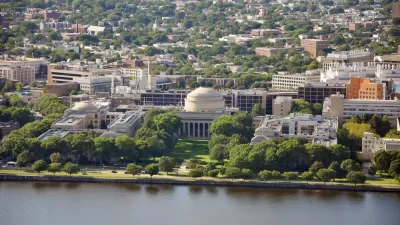This article from Government Technology looks at the idea of municipal Wi-Fi Internet access and why it has struggled to take off.
While some cities tried to arrange deals with private providers and others tried to forge networks on their own, major hurdles to municipal Wi-Fi in the U.S. have been the development of network infrastructure and the question of funding.
"On one side, there's Philadelphia, where IT officials announced in December 2009 that they would build the network themselves, more than a year after the EarthLink deal fell through. After their private model flopped, IT officials decided a public Wi-Fi neftwork would better serve the city by enhancing mobile applications and access for building inspectors, code enforcers and emergency responders.
But Minneapolis, which just completed its $20 million network, went a different route. Rather than build their own network, city officials chose to become the anchor tenant for US Internet, a 15-year-old international provider of Internet and hosting services. That financial security freed the company to build a network that would also serve residents. The city already boasts more than 16,000 private subscribers, said Joe Caldwell, CEO of USI Wireless, a subsidiary of US Internet."
FULL STORY: How to Make Municipal Wi-Fi Work

Maui's Vacation Rental Debate Turns Ugly
Verbal attacks, misinformation campaigns and fistfights plague a high-stakes debate to convert thousands of vacation rentals into long-term housing.

Planetizen Federal Action Tracker
A weekly monitor of how Trump’s orders and actions are impacting planners and planning in America.

In Urban Planning, AI Prompting Could be the New Design Thinking
Creativity has long been key to great urban design. What if we see AI as our new creative partner?

Portland Raises Parking Fees to Pay for Street Maintenance
The city is struggling to bridge a massive budget gap at the Bureau of Transportation, which largely depleted its reserves during the Civd-19 pandemic.

Spokane Mayor Introduces Housing Reforms Package
Mayor Lisa Brown’s proposals include deferring or waiving some development fees to encourage more affordable housing development.

Houston Mayor Kills Another Bike Lane
The mayor rejected a proposed bike lane in the Montrose district in keeping with his pledge to maintain car lanes.
Urban Design for Planners 1: Software Tools
This six-course series explores essential urban design concepts using open source software and equips planners with the tools they need to participate fully in the urban design process.
Planning for Universal Design
Learn the tools for implementing Universal Design in planning regulations.
Gallatin County Department of Planning & Community Development
Heyer Gruel & Associates PA
JM Goldson LLC
City of Camden Redevelopment Agency
City of Astoria
Transportation Research & Education Center (TREC) at Portland State University
Jefferson Parish Government
Camden Redevelopment Agency
City of Claremont



























